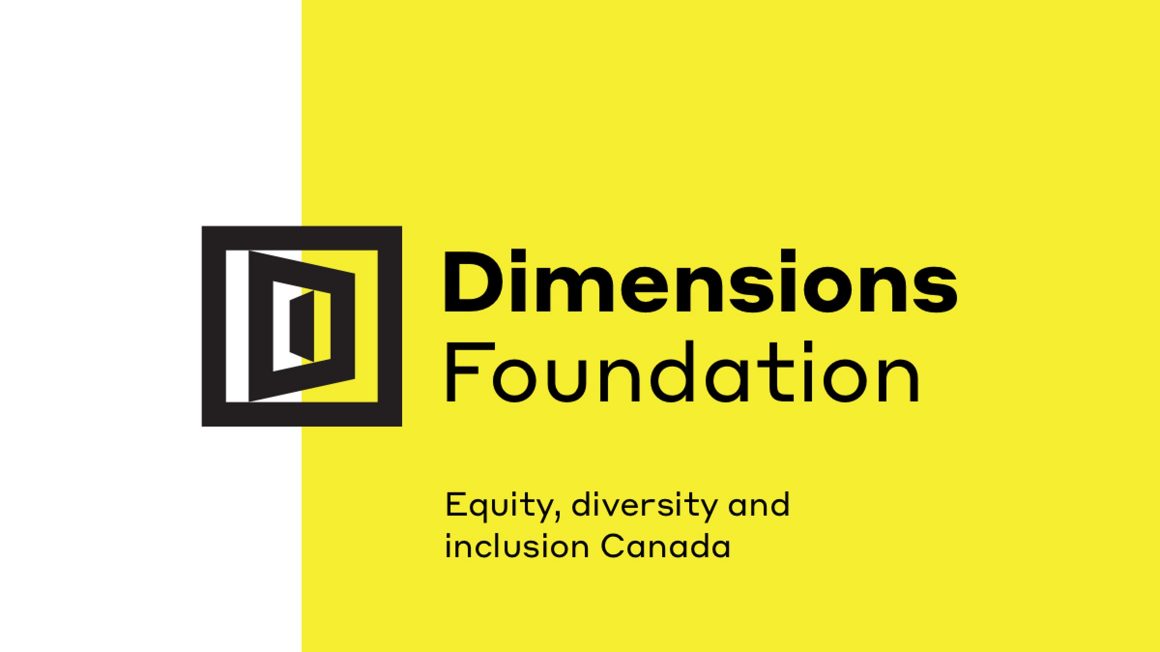The University of Winnipeg is proud to have successfully applied for, and received, Stage 1 – Foundation recognition from the Tri-Agency’s Dimensions program.
We have focused mostly on the experiences of faculty and staff, but to reach the next stage, we will need to work on engaging with students and better assessing their experiences related to EDI.
Larissa Wodtke
Launched in May 2019, Dimensions publicly recognizes post-secondary institutions seeking to increase equity, diversity, and inclusion (EDI) in their environments and across the research ecosystem. UWinnipeg is one of 17 participating institutions from across Canada.
“Receiving Stage 1 – Foundation recognition means UWinnipeg has established the groundwork to address equity, diversity, and inclusion in a more strategic and coordinated way,” said Larissa Wodtke, Program Officer of Equity, Diversity, Inclusion, Anti-Racism, and Decolonization and Research for the Office of the Vice-President, Research and Innovation. “This recognition requires an evidence-based approach that responds to the concerns and lived experiences of those from equity-deserving groups on campus. The process of self-assessment, planning, and implementation is cyclical, so we’ll constantly be reassessing our objectives and actions to ensure that we’re addressing equity, diversity, and inclusion in the most effective and meaningful way possible.”
In Stage 1 – Foundation, institutions are in the early stages of strategically addressing EDI in a coordinated way. A strategy to collect representational data has been established and the institution has:
- Established a self-assessment team;
- Quantitative and qualitative data collection, environmental scan, engagement, and analysis/reflection underway or planned; the capacity to conduct these is being established, but these activities have not yet all been completed;
- Provided preliminary evidence in each of the five categories of the assessment as part of the application; and
- A five-year action plan with short-term objectives in place
“Next steps include the drafting and publication of the UWinnipeg Five-Year EDI Action Plan and an Employment Equity Plan. As we work towards the objectives in each plan, we will determine whether we are ready to apply for Stage 2 – Construction, which requires additional data collection, engagement, and reflection on how we are addressing EDI issues,” Wodtke added. “We have focused mostly on the experiences of faculty and staff, but to reach the next stage, we will need to work on engaging with students and better assessing their experiences related to EDI.”

Larissa Wodtke, Program Officer of Equity, Diversity, Inclusion, Anti-Racism, and Decolonization and Research, Office of the Vice-President, Research and Innovation.
This past Winter Term, the Research Office developed and piloted an EDI in Research Certificate program, which provided an introduction to the principles of equity, diversity, and inclusion in the context of research design (e.g., methods, approaches, knowledge mobilization, data management, etc.) and practice (e.g., team composition, recruitment, training, work environment, etc.) within the Canadian post-secondary context, as well as offering strategies and tools on how to incorporate those principles.
The six modules of training were taught by five instructors:
- Dr. Jennifer Adams, Canada Research Chair in Creativity and Science and Academic Director of Black Futures Strategy, University of Calgary
- Larissa Wodtke, Program Officer, Equity, Diversity, Inclusion, Anti-Racism, and Decolonization and Research, The University of Winnipeg
- Dr. Nicole Kaniki, Director of Diversity, Equity, and Inclusion in Research and Innovation, University of Toronto
- Dr. Heena Mistry, Manager of EDI Training, Planning, and Strategic Initiatives, Wilfrid Laurier University
- Dr. Kumudinie Kariyapperuma, Research Facilitator, Wilfrid Laurier University
The first cohort of 54 researchers received their certificates this month. The program will be offered again in Fall Term.
“Initially, I registered for the EDI in Research Certificate program because I was looking for best practices for incorporating and/or infusing EDI principles into research funding proposals. The program provided best practices and recommendations, and it also provided an abundance of resources and advice for different grant applications,” said Dr. Laurie-Ann Helsten, Dean of the Faculty of Education. “I was struck by the depth of expertise of the speakers chosen to lead the different sessions and I really appreciated the mix of in-house and invited speakers from different institutions. I also valued the opportunity to learn alongside researchers from diverse disciplines, as well as the targeted time provided to share ideas with others doing more discipline-specific research. I strongly recommend the program to others.”
In February, UWinnipeg also became an official signatory of the Scarborough Charter on Anti-Black Racism and Black Inclusion in Canadian Higher Education.
Along with more than 50 other university signatories from across Canada, UWinnipeg’s signature marks an ongoing institutional commitment to address anti-Black racism and promote Black inclusion in policy and practice. UWinnipeg is in the early stages of engagement to inform an institutional plan to address the Scarborough Charter.
“The University of Winnipeg is known for providing an excellent academic experience in one of Canada’s most diverse and supportive campus communities,” said Dr. Todd Mondor, President and Vice-Chancellor. “Our focus on equity, diversity, and inclusion is integrated throughout our approaches to teaching, learning, research, and engagement, and signing the Scarborough Charter is an important step in formalizing our commitment to these values.”
About Dimensions
Dimensions: equity, diversity, and inclusion Canada invites post-secondary institutions to take part in a transformation to increase equity, diversity and inclusion, and help drive deeper cultural change within the research ecosystem by identifying and eliminating obstacles and inequities. This will support equitable access to funding opportunities, increase equitable and inclusive participation, and embed EDI-related considerations in research design and practices.

